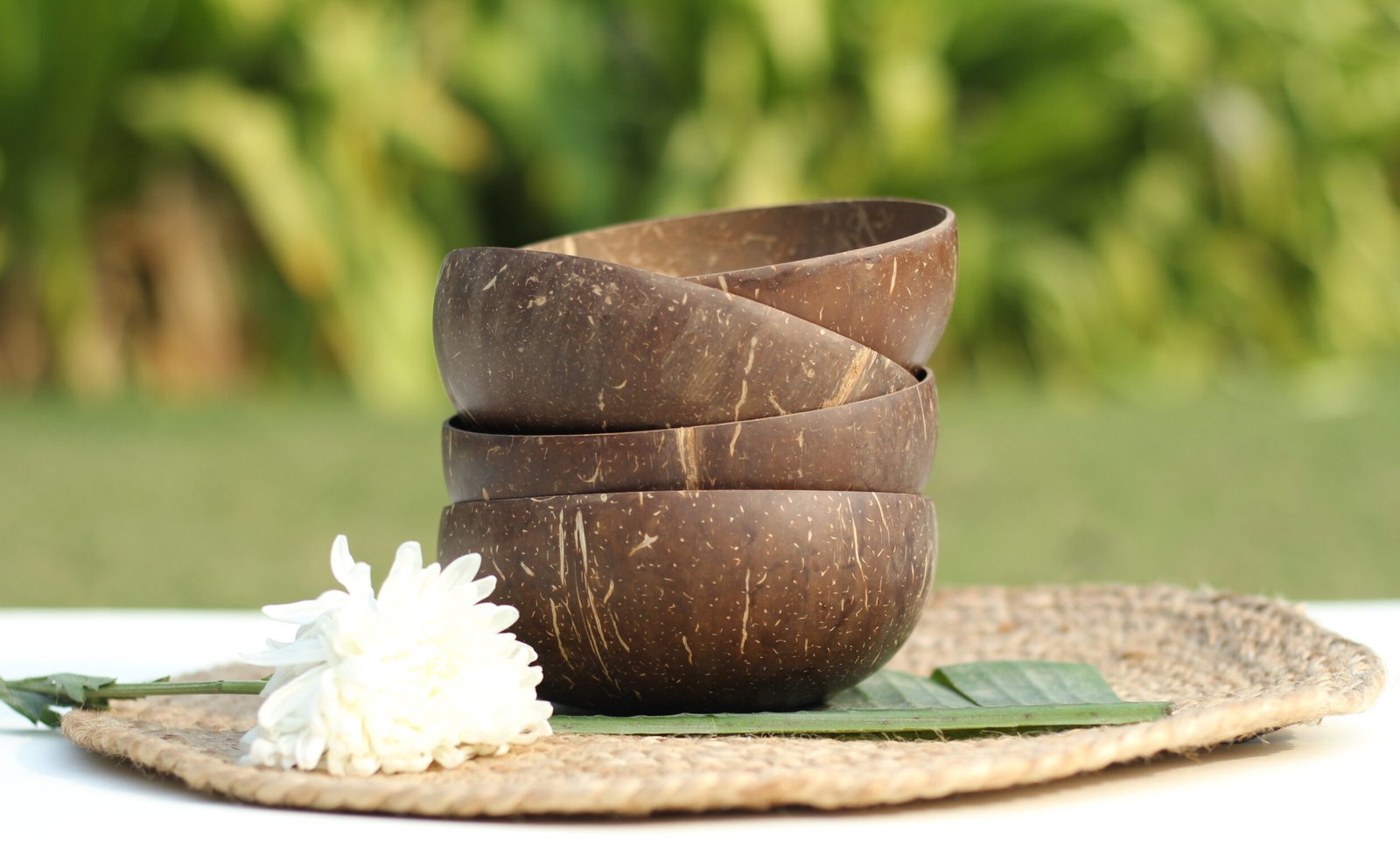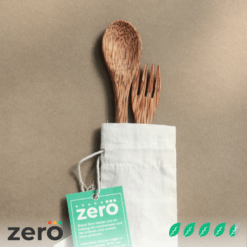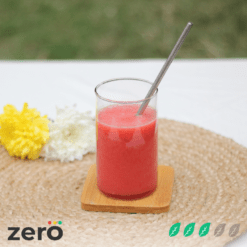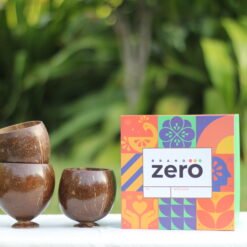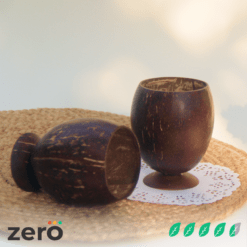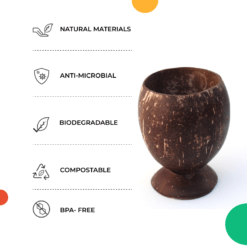Environment, Sustainability
5 Reasons to Invest in Coconut Juice Cups Right Now!
Here’s the thing about coconuts, they are awesome and we love them. 🙂
No no, we’re not biased!
Apart from being highly qualified for your Instagram-worthy meals, using coconut products has a huge positive impact on the environment. There are several options when it comes to choosing the type of cups you’d like to use for sipping on some delicious beverages and smoothies.
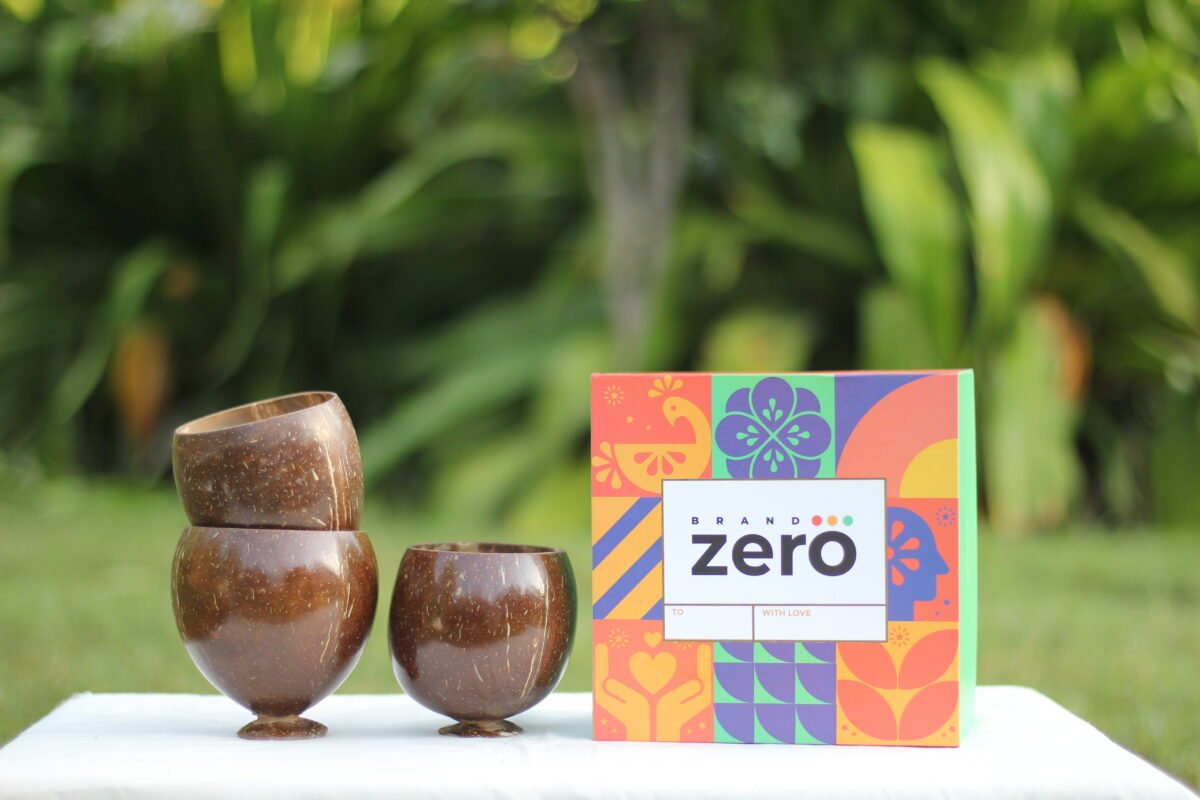
Why should you choose coconut juice cups over any other alternatives?
Here, we have compared a coconut cup with a plastic alternative using our 5-factor rating system. You can read more about our rating system here. (insert hyperlink)
| Factors | Coconut | Plastic |
| 1. Raw Material | Natural | Synthetic |
| 2. Manufacturing Emissions | Low | High |
| 3. Product Lifespan | 1-3 years | 5+ years |
| 4. Biodegradability | 1-2 years | >450 years |
| 5. Packaging | Minimal | Not Minimal |
| BZ Eco-Rating | 4.5 | 1.5 |
BZ ECO-FACTORS RATING:
Our environmental rating is formulated by considering the following 5 factors:
Raw Material:
Coconut is a natural, organic, and decomposable material, while plastic is an artificial, man-made product. Hence, coconut juice cups are given a rating of 1 while plastic is rated 0.
Manufacturing Emissions:
Manufacturing coconut products results in lesser carbon emissions as compared to the process of making plastic from oils. Hence, coconut cups are rated as 1 while plastic is rated as 0.
Lifespan:
Plastic cups have a longer lifespan of 5+ years as compared to coconut cups, being at 1-3 years, depending on the usage. Hence coconut is at 0.5, while plastic is at 1.
Biodegradability:
Coconut cups have a biodegradability span of 1-2 years years while plastic takes longer than 500 years. Hence, coconut is at 1, and plastic is rated 0.
Packaging:
BZ follows minimal packaging practices; our juice cups are shipped in 100% post consumer, recycled boxes which are handmade and made out of post-consumer paper; without any chemical treatment or synthetics. The boxes are all earthen colored (brown) and minimal ink is used, which avoids the use of any toxic colors, hence rated as 1. https://luxlifemiamiblog.com/ While plastic cups are rated 0.5 since the packaging may or may not be eco-friendly and minimal depending on the manufacturers.
As you can observe, coconut juice cups are clearly the winner here! 🙂
Let’s talk coconuts!
Coconuts are extremely versatile, they have many distinctive qualities such as,
- Sturdy
- Long-lasting
- Has authentic vibes, etc.
Other alternatives for cups would be metallic ones. But recycling a glass, steel, or copper product requires more extensive energy as compared to the composting process of a coconut product.
ENVIRONMENTAL IMPACT OF THE PRODUCT:
1) Number of units wasted worldwide:
1 nylon product (plastic cup) creates ~ 3,78,000 years of waste over a lifetime.
8.3 billion plastic products pollute the world’s beaches. It is estimated that by 2050 the number of plastics in the sea will be higher than the number of fish.
Coconut shells are discarded and burnt which produces a significant release of CO2 and methane in the atmosphere.
2) Packaging waste created:
Plastic is one of the most widely used materials when it comes to packaging.
It contributes to around 40% of packaging waste. A plastic bag has an average working lifespan of 15 minutes, after which it is discarded. Approximately, about 500 billion plastic bags are used worldwide.
Quick Usage Techniques:
Cleaning:
Clean the coconut juice cups with some lukewarm water and soap; avoid any harsh dishwashers. The anti-fungal properties of coconut helps in maintaining oral hygiene.
Storage:
Coconut fiber adds air pockets into your medium which means it’s not very absorbent which prevents mold if stored correctly.
After cleaning the juice cups, let them dry off, and then store them in a dry place to avoid any fungus formation.
Apply coconut oil to its texture to get a shiny new look.
Also, avoid extremely hot, boiling food as it might lead to a crack.
Disposal:
Since coconut juice cups are completely biodegradable, you can;
- Compost them in a home composting bin.
- Drop them off at a nearby local commercial composter.
